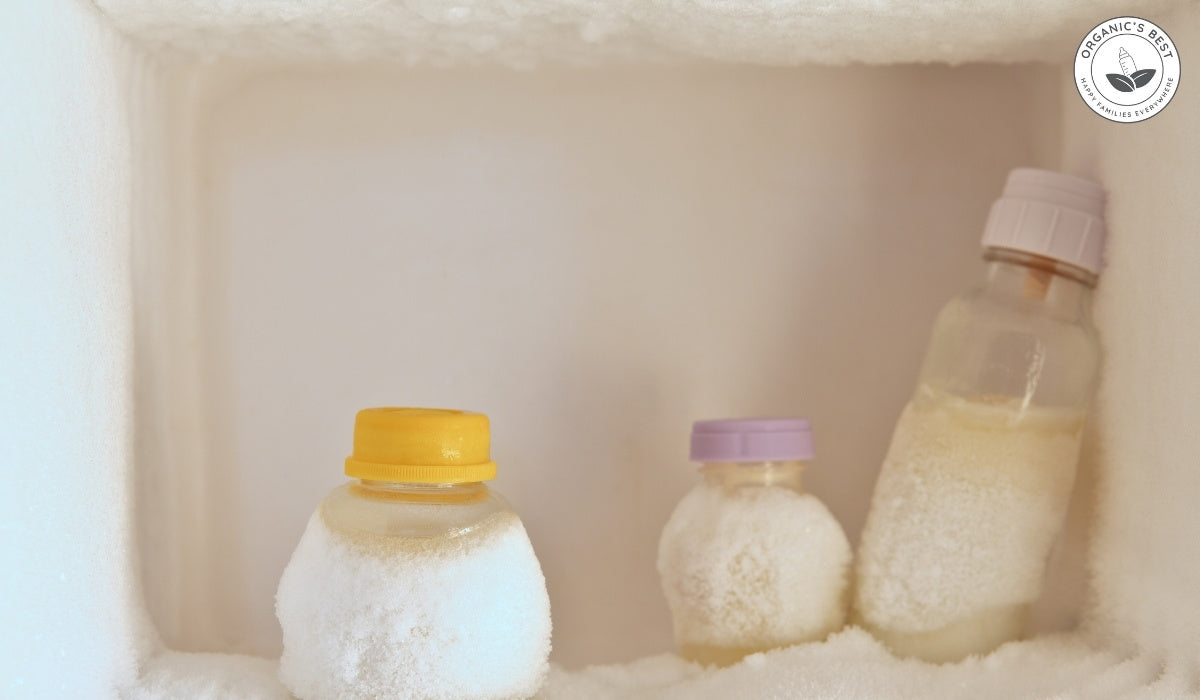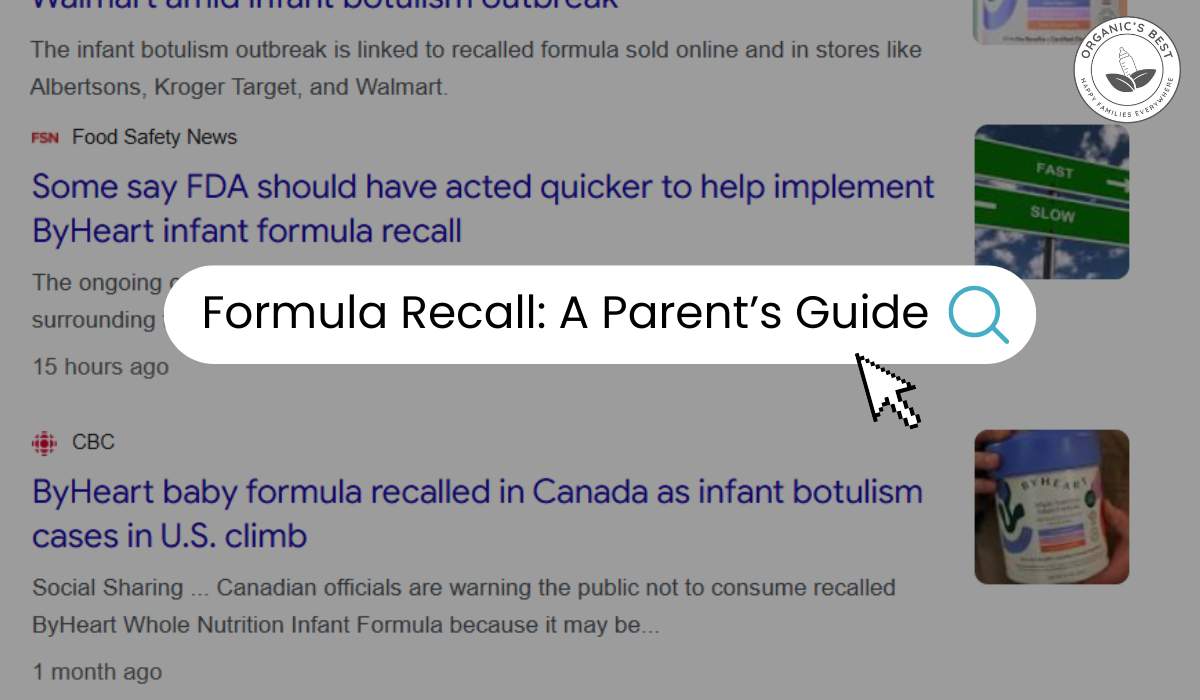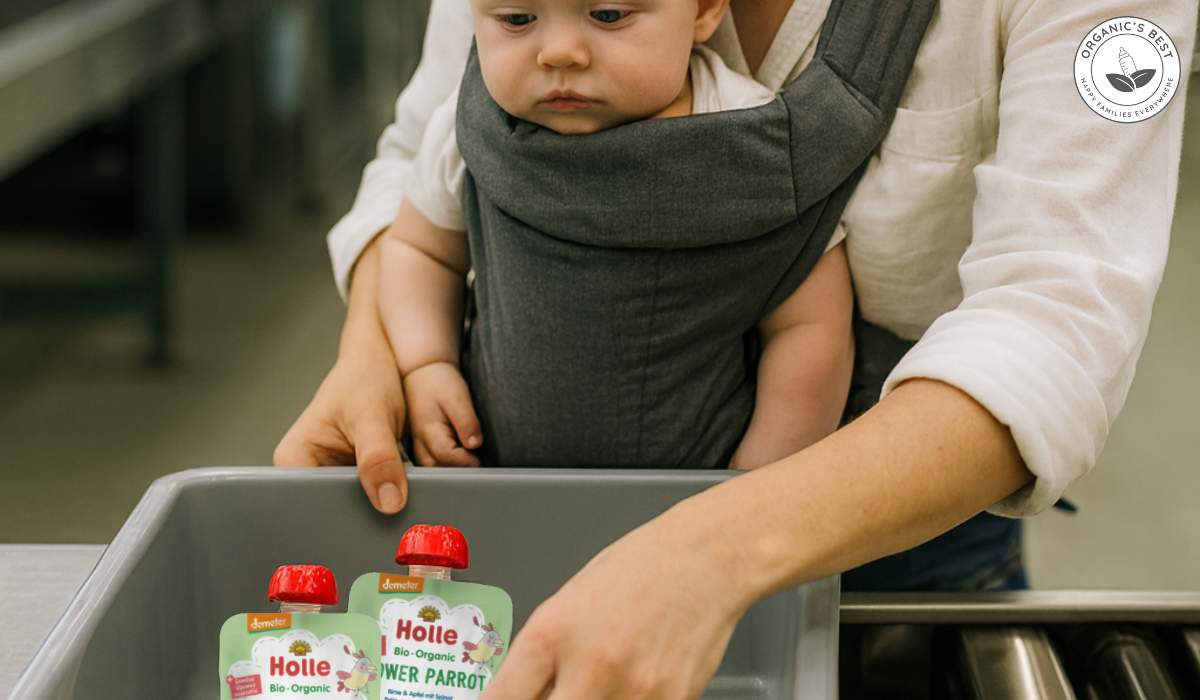Click to Get 2 FREE Boxes/Cans
Click to Get 2 FREE Boxes/Cans
Only New Customers! Click HERE to Get 2 Extra Boxes/Cans for Free With Your First Order.
Only New Customers! Click HERE to Get 2 Extra Boxes/Cans for Free With Your First Order.
BABY FORMULA
Offering new parents top-quality European infant formula from renowned brands like HiPP, Holle, Kendamil, and more. If you’re uncertain about which product to choose, our Formula Finder can help you make the best decision for your baby.
Baby Food
Offering new parents a premium selection of European baby foods, including jars, pouches, cereals, and snacks from esteemed brands like HiPP and Holle.
Can You Freeze Formula Milk? Understanding the Do's and Don'ts
by Agustina Fernandez July 02, 2024 5 min read

Freezing formula milk can seem like a convenient option for busy parents looking to save time and ensure their baby always has a fresh supply, but is it safe?
In this article, we will answer the question: can you freeze formula milk? We also offer optimal storage techniques to make sure that your baby formula-feeding journey is a happy and healthy one!
Table of Contents
What Happens if Formula Freezes?
Right off the bat, we want to make it clear that per guidelines provided by the Food and Drug Administration (FDA), it is not recommended to freeze baby formula.
Unlike breast milk, which can be stored in a freezer for up to 12 months, formula should not be frozen and is best prepared fresh. There are a few reasons for this, which will be discussed in more detail below.

Changes in Texture and Consistency
One major caveat to frozen baby formula is the likelihood of the contents separating during the freezing process. This separation can cause major changes in the texture and consistency of the formula, making it unpleasant to consume and difficult to accurately measure.
When it comes to prepared formula or liquid concentrate formulas, freezing can cause fat to separate from proteins, while powdered formula is prone to clumping in humid environments, and freezing is not recommended as it can affect the quality.
This can make powdered formula difficult to scoop and measure accurately during the mixing process, and knowing how much formula to give your baby and accurately measuring it is essential to their health.
Impact on Nutrients and Effectiveness
Exposure to an extreme temperature, like when you freeze formula, can degrade the nutrients found in infant formulas, making them less potent and nutritionally imbalanced.
During infancy, babies require a specific amount of minerals, proteins, and fats to support optimal growth and development. A failure to obtain these nutrients can result in stunted growth and long-term health complications.
For this reason, parents are advised against freezing baby formula, especially if their little one is at an age where formula is the sole source of nutrition.
The Risks of Freezing Infant Formula
Based on the risks listed below, it is recommended to avoid freezing baby formula. Instead, parents and caregivers should adhere to the storage instructions provided by the formula manufacturer.
Potential for Separation and Graininess
When formula is frozen, the different components, particularly fats and proteins, can separate. This separation occurs because the ingredients in baby formula solidify at different rates.
As a result, when the formula is thawed, it often doesn't return to its original, smooth consistency. Instead, it can become grainy or lumpy, making it less appealing and potentially difficult for infants to consume.
How Freezing Affects Fat Distribution and Solubility
When you freeze formula, you may disrupt the balance of nutrients as they become unevenly disbursed. In particular, the fats in the formula can clump together during the freezing process, leading to uneven distribution throughout the liquid.
This not only affects the texture but can also impact the nutritional content of each feeding, as some portions may end up with more or less fat than intended, which can impact an infant's growth.
Moreover, the solubility of fats can be compromised. In liquid form, the fats in infant formula are emulsified, meaning they are evenly dispersed within the water. Freezing can break this emulsion, causing the fats to separate and become less soluble.
Can You Freeze Leftover Formula from a Bottle?
While wasting formula is not ideal, it is crucial that babies do not consume leftover formula from a used bottle, even if the leftovers are promptly refrigerated or frozen.
This is because bacteria from your baby's mouth can be introduced to the formula during feeding. This bacteria growth may lead to illness if consumed at a later time.

As a general rule, the formula should be consumed by your baby within 2 hours of preparation and within 1 hour once the feeding has begun.
The Centers for Disease Control and Prevention (CDC) advises parents to immediately store their baby's bottle in the fridge and use it within 24 hours if it is not consumed within 2 hours.
In this case, erring on the side of caution is essential to ensure the health and well-being of your little one. Discard any leftover formula that has been in contact with your little one's mouth, and prepare fresh formula bottles for each feeding.
Can You Freeze Formula Milk for Teething?
While frozen breast milk lollies have become popular for soothing sore gums during teething, the FDA advises against giving your child anything frozen, including formula, as it may harm their gums and degrade the quality of the nutrients.
Instead, gentler teething remedies such as massaging the gums with your finger or offering a rubber teething toy can help ease discomfort. Chilling toys in the refrigerator (not the freezer) may provide additional relief to your baby.
Top Tips for Storing Baby Formula to Avoid Freezing
When it comes to storing infant formula, these tips will ensure that the product remains fresh and safe until the expiration date on the packaging.

• Store baby formula in a cool and dry place indoors, away from any source of heat or sunlight.
• Do not leave your baby's formula in the car or garage, even if the packaging is sealed, as extreme temperatures can degrade the nutrients and cause powdered formula to clump.
• Do not store unopened containers of formula in your refrigerator.
When you purchase from Organic's Best, we ensure that our powder formulas have a minimum shelf life of 6 months. However, we typically offer even longer expiration dates to guarantee freshness.
Conclusion: Is Freezing Formula Milk Advisable?
The short answer is no! To protect your little one's health and well-being, it is best to avoid freezing formula, as it can degrade the nutrients and alter the texture and consistency of your infant's formula.
Disclaimer:
Please be aware that this information is based on general trends in babies, and it is not medical advice. Your doctor should be your first source of information and advice when considering any changes to your child’s formula and when choosing your child’s formula. Always consult your pediatrician before making any decisions about your child’s diet or if you notice any changes in your child. Breastfeeding is the best nutrition for your baby because breast milk provides your child with all the essential nutrients they need for growth and development. Please consult your pediatrician if your child requires supplemental feeding. |
Agustina Fernandez
Dr. Agustina Fernandez earned her medical degree from the prestigious Universidad Nacional de Córdoba, Argentina. With a deep-rooted passion for pediatrics, Dr. Fernandez is currently on the path to specializing in children's healthcare. Recently, she has delved into the vital field of infant nutrition. Her research interests include breastfeeding, infant formula, and baby food in little ones’ formative years. Dr. Fernandez's commitment to this area of study underscores her dedication to ensuring the health and well-being of children from their earliest days.
Leave a comment
Comments will be approved before showing up.
Also in Organic Infant Nutrition and Health Blog

All You Need to Know About Formula Recall: A Parent’s Guide
by Agustina Fernandez December 23, 2025 8 min read
Read More
Everything You Need To Know About Winter Pregnancy: Essential Tips for Moms-to-be
by Agustina Fernandez December 16, 2025 8 min read
Read More
Can You Bring Baby Food Pouches on a Plane? Essential Tips for Parents
by Agustina Fernandez December 09, 2025 7 min read
Read More
Reviewed by Dr. Po-Chang Hsu, MD, MS
-

Dr. Po-Chang Hsu: Medical Reviewer of Organic's Best Blog
Dr. Hsu received his medical degree from Tufts University in Boston, Massachusetts, and holds a Master’s of Science degree from both Harvard University and Tufts University.
